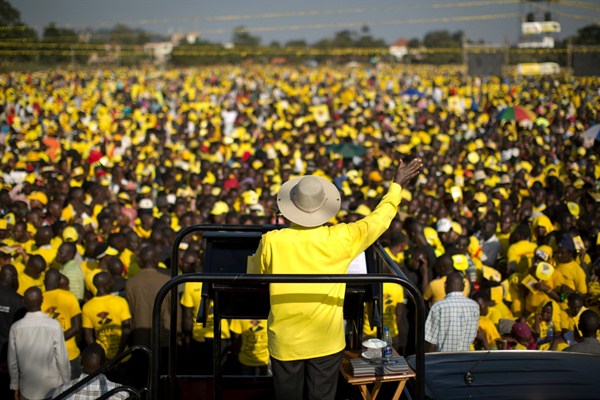KAMPALA, Uganda — Kampala, Uganda’s capital city, was eerily quiet on Saturday, Feb. 20, the day the Ugandan Electoral Commission announced the results of the presidential election held two days before. Even in Kabalagala, a lively district where people are usually partying at any time of day, the streets were empty. A few dozen young men sat huddled around a TV in a betting parlor, but they weren’t waiting for the election results; instead, a soccer game of the English Premier League flickered on the screen. “We know already who will win the elections,” one of them said. “We are more interested in how Arsenal is playing today,” he added, before turning his attention back to the screen.
The official results proclaimed a victory for incumbent President Yoweri Museveni, whose 61 percent of the vote was enough to avoid a second-round run-off, but not an overwhelming majority compared to what sitting presidents often garner in other African elections. But in Kampala, nobody celebrated Museveni’s victory. There were no cavalcades of cars, no spontaneous outbursts of joy in public squares. On the contrary, the military and police patrolled the streets, and civilians stayed at home. In the end, Museveni himself canceled the official celebrations.
That silence is not a symptom of routine acceptance of Museveni victories after 30 years of his rule, nor is it a recognition of the record of “steady progress” that the president had claimed for his administration throughout the campaign. Rather, it was the silence before the storm: While Museveni secured re-election, everybody in Uganda and the region realizes that this victory represents the beginning of the end of his grip on power.

